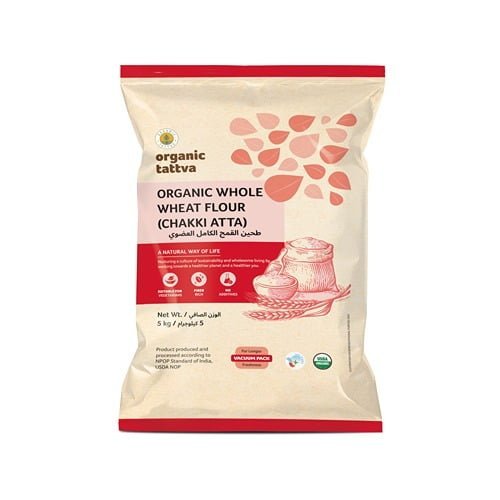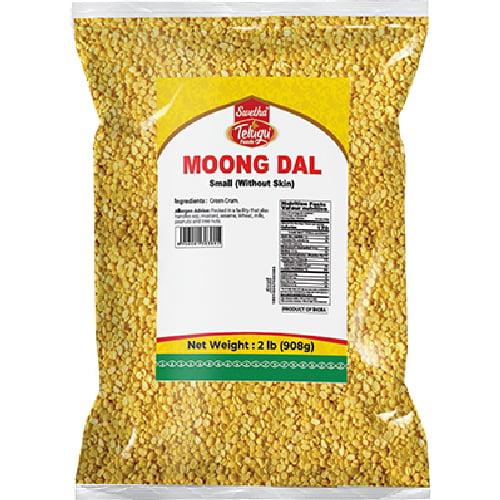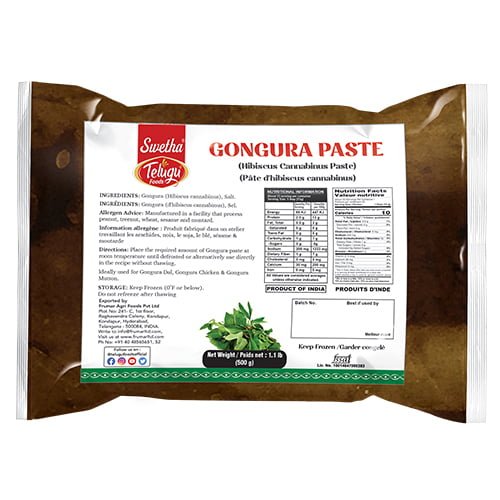Introduction to Chia Seeds by Telugu Foods
Chia seeds, derived from the Salvia hispanica plant, have gained significant attention in health food markets around the globe. Native to Mexico and Guatemala, these tiny seeds were cultivated by ancient civilizations like the Aztecs and Mayans, who recognized their nutritional value and energizing properties. In recent years, chia seeds have re-emerged as a superfood, praised for their exceptional health benefits.
One of the key nutritional attributes of chia seeds is their impressive content of omega-3 fatty acids. These essential fats play a critical role in maintaining cardiovascular health and supporting cognitive function. Additionally, chia seeds are an excellent source of protein, containing all nine essential amino acids. This makes them a valuable addition to the diets of vegetarians and vegans seeking plant-based protein sources.
Fiber is another significant benefit of chia seeds, as they are packed with both soluble and insoluble fiber. This aids in digestion and contributes to a sense of fullness, making them an ideal food for those managing their weight. Furthermore, chia seeds are rich in essential micronutrients, including calcium, magnesium, and phosphorus, all of which are crucial for maintaining strong bones and overall bodily functions.
The growing popularity of chia seeds can be attributed to the rising health-conscious consumer base, as more individuals seek out foods that offer a myriad of health benefits. As people increasingly embrace nutritious diets, these seeds have found their way into smoothies, baked goods, and even traditional dishes, bridging modern health trends with cultural recipes. The adaptability of chia seeds makes them not only a versatile ingredient but also a potential game-changer in the global distribution and integration of Telugu foods into the health food market.
Cultural Significance of Chia Seeds in Telugu Cuisine
Chia seeds, known for their nutritional benefits and versatility, are gradually making their mark in Telugu cuisine. Traditionally rooted in the vibrant agricultural practices of the region, Telugu culinary traditions have long embraced diverse ingredients. Chia seeds, with their rich omega-3 fatty acids, fiber, and protein content, offer a contemporary twist to classic dishes while aligning with global health trends.
In traditional preparations, chia seeds can be integrated into various recipes to enhance texture and nutritional value. One popular method is by using them in puddings. By soaking chia seeds in milk or plant-based milk overnight, they absorb liquid and create a creamy, gel-like consistency. This pudding can be flavored with local ingredients such as jaggery, coconut, or seasonal fruits, transforming it into a nutritious dessert or breakfast option. Such adaptations maintain the essence of Telugu cuisine while catering to health-conscious individuals.
Additionally, chia seeds can be incorporated into smoothies, an increasingly popular choice among health enthusiasts. Blending chia seeds with locally sourced fruits like mango, banana, or guava not only boosts the nutritional profile of the drink but also provides a delightful texture. The inclusion of chia seeds in smoothies reflects a blend of traditional flavors with modern dietary needs, making it appealing to a wide audience.
Moreover, chia seeds serve as an excellent texture enhancer in dishes throughout Telugu cuisine. They can be sprinkled over salads, added to dosa batter, or mixed into traditional rice dishes, introducing a nutty flavor without overpowering the original taste. Such versatility enables culinary creators to maintain authenticity while embracing innovation.
As these healthful seeds gain traction in Telugu cooking, they symbolize a bridge between heritage and modernity, offering a unique opportunity to explore the culinary landscape further. In navigating this blend, chia seeds not only enrich traditional recipes but also promote a healthier lifestyle, making them a valuable ingredient in contemporary Telugu cuisine.
Market Potential and Global Demand for Chia Seeds
The global demand for chia seeds has witnessed significant growth in recent years, primarily due to the increasing awareness of health and wellness among consumers. As a nutrient-dense superfood, chia seeds are valued for their high omega-3 fatty acid content, fiber, and antioxidant properties. According to recent market research, the chia seed market is projected to grow at a compound annual growth rate (CAGR) of approximately 25% from 2021 to 2026. This surge in demand reflects the broader shift towards healthy eating habits and the incorporation of functional foods into diets.
Key markets driving this growth include North America and Europe, where consumers are increasingly opting for natural and organic products. The United States, in particular, stands out as a major consumer of chia seeds, with a diverse demographic that includes health-conscious millennials, fitness enthusiasts, and individuals following specialized diets such as veganism or paleo. Retailers are responding to this trend by expanding their product lines to include chia seeds in various forms, such as whole seeds, powders, and oils, thus appealing to a wide range of target audiences.
Moreover, emerging markets in Asia-Pacific and Latin America present significant opportunities for growth. As awareness of superfoods increases in these regions, the potential for distribution of chia seeds is expanding. Telugu foods can strategically position themselves to capitalize on this trend by developing marketing campaigns that emphasize the health benefits of chia seeds, thereby attracting a growing number of consumers interested in wellness. Pricing strategies should reflect both premium quality and affordability to cater to diverse economic segments.
In summary, the expanding global market for chia seeds presents fertile ground for Telugu foods, offering both economic benefits and an avenue for innovation in the healthy food sector. By leveraging current trends and understanding the target demographics, stakeholders can effectively engage in this lucrative market.
Challenges in Global Distribution of Chia Seeds
The global distribution of chia seeds, particularly those originating from Telugu foods, faces a myriad of challenges that impede their market penetration and successful integration into international markets. One of the primary obstacles is navigating the complex regulatory environment. Different countries have varying standards for food safety and quality, which requires manufacturers and distributors to adapt their products and processes accordingly. This situation can delay the entry of chia seeds into new markets and increase compliance costs.
Furthermore, supply chain logistics pose significant hurdles. Given that chia seeds require specific storage conditions to maintain freshness and nutritional quality, any mismanagement in transport can lead to product degradation. Efficient logistics management is crucial, yet many distributors encounter issues such as inadequate infrastructure and unexpected delays that compromise the integrity of the product. The geographical distance between producers and target markets can exacerbate these logistics challenges, creating additional layers of complexity.
Quality assurance is another pivotal element in the distribution of chia seeds. Maintaining high standards throughout the supply chain is essential, as consumers demand clean, safe, and nutrient-dense products. Any failure in quality checks can lead to significant reputational damage for distributors and manufacturers alike. Moreover, competition in the market is fierce, with numerous players vying for attention in a relatively niche segment. This competition necessitates not only robust marketing strategies but also innovations in product offerings to stand out.
Lastly, the emphasis on sustainable farming practices cannot be overstated. As consumers become increasingly conscious of their environmental choices, ensuring that chia seeds are produced sustainably is imperative for long-term success in global markets. Balancing these various challenges while adhering to international food safety standards is critical for achieving successful global distribution of chia seeds and elevating Telugu foods on the world stage.
Strategies for Successful Distribution of Chia Seeds
Establishing a successful distribution network for chia seeds in the global market requires a comprehensive approach that encompasses partnerships, marketing campaigns, and the utilization of online sales avenues. To begin with, forming strategic partnerships with local and international retailers can significantly amplify the reach of Telugu foods. These collaborations can also leverage existing distribution channels to make chia seeds more accessible to consumers seeking healthy food options.
Developing targeted marketing campaigns that highlight the nutritional benefits and versatility of chia seeds is crucial. These campaigns can be conducted through various platforms, both digital and traditional, to create brand awareness. A strong brand identity is essential for recognition in a competitive market. By focusing on quality, sustainability, and the cultural significance of chia seeds in Telugu cuisine, brands can attract health-conscious consumers. Engaging storytelling can be an effective means to connect the product with consumers’ lifestyles and wellness aspirations.
The rise of e-commerce presents an invaluable opportunity for distribution. Establishing an online presence through a dedicated website and social media platforms can facilitate direct sales and engagement with customers. Social media provides an excellent platform for creating awareness, sharing recipes, and educating potential customers about how to incorporate chia seeds into their diets. Furthermore, producing engaging content such as videos, blogs, and infographics can enhance visibility and foster a community around health and wellness.
Collaborations with health food brands can also enhance distribution opportunities. By aligning with established players in the health food sector, Telugu foods can access new customer segments and strengthen their credibility. Additionally, participating in health fairs and community events can further solidify the brand’s presence and foster consumer loyalty.












Reviews
Clear filtersThere are no reviews yet.